It Depends… On the Context
Do a small retrospection. During the 70′ aerobic training was a hype. Everybody was doing it. It made you lean, it made you athletic. It was demanded from you to do it. Afterward, comes the static stretching. Everybody was stretching. Unstable surfaces. Strength training. We can go on and on.
After some time, there comes the anti-hype. Currently, there is a lot of bitching on aerobic training. Static stretching had it’s own negative period, where doing static stretching made you slow and weak. Aerobic training currently makes you fat and you may develop cancer by running 20mins. Yeah, right. Even some years ago, strength training made you slow and bulky. Do you see where am I going to?
Depending on who you listen to, German philosopher Hegel identified the three step process of thesis-antithesis-synthesis (although it is questionable whether did he actually used/invented it or not). Every idea pass through these three stages, sometimes over multiple times.
- The thesis is an intellectual proposition.
- The antithesis is simply the negation of the thesis, a reaction to the proposition.
- The synthesis solves the conflict between the thesis and antithesis by reconciling their common truths, and forming a new proposition.
If you think about it, all the hype in strength training and sports training in general is passing through these stages, some of the hypes being currently at different stages. Using Complementarity thinking (squiggle sense) makes us solve the conflict between two opposing ideas and thus reach the stage of synthesis faster.
Being in synthesis mode makes you being pragmatic, instead of dogmatic. I see a lot of discussions in books and research papers, including internet of course, about which method/exercise is good or bad, or better than another one. The best answer to this debate is: it depends! Using your squiggle sense of complementary nature reminds you that there are no good or bad things per se. Truth is usually in the middle, in the shades of gray, and it is context dependent among other things.
What does this mean in practical words? Instead of bitching on methods, which one is better or worse and using words as always, never, and must one should try to identify the context under which certain exercise, method or training load is a smart choice for a certain athlete aiming to reach certain goals. Why are we limiting our option by saying: Aerobic training is bad, specific training is a only way to go, we only do this, etc? Why being dogmatic ideologist? Why not understanding the context under which certain training or nutrition strategy yield desired effects?
This reminds me of a situation where me and a friend of mine were watching TV one night and the short reportage about soccer preparations at some camp for World Cup have been showing. The soccer player were riding a bicycle in the park. At first it made us laugh. A friend of mine said that that video shows stupidity of soccer training, because training was not specific for soccer. Not specific? I agree. It is not specific for soccer. You don’t ride a bike on a soccer field. But, then I started thinking more about it. How many friendly games are they playing? A lot. What is the proximity of World Cup? Very short. You wanna risk an injury by doing more high intensity running in a week preceding the most important competition in the World?. Then, analysis of the context under which those soccer player were, understanding their unique situation made me think that what they were doing was not bad. It was optimal for their context and goals. So, you wanna be dogmatic and make them do high intensity specific training on top of all the game playing. You wanna be a smart ideological guy? Go ahead. Try. Give your athletes medical profile. Sometimes, actually most of the times, it is not what you want to do or like to do with your athletes, it is what they need and can do, and what they love to do. It is always a compromise. Being dogmatically blind to this, not taking context into option can yield disasters.
The importance of context is far more important than the example I gave above. I will give you one more example I experienced myself. During September, 2008 I was head strength and conditioning coach for a soccer club in Second National League in Serbia. So, this soccer club was the only club in the league that didn’t utilize awards for the wins (if you win, along with regular monthly salary, you get premium salary depending on game performance), only punishments, which were 50% and 100% of month salary. Yes, you read it correctly – 50% and 100%. The club manager was really ‘evil’ person, very negative. Playing and working for this club was like having a loaded gun on your head all the time. Stress levels were enormous. And yes, that’s how it’s like working in Serbian sport clubs.Not all, but most of them.
Anyway, what is the point of this? The point is that this negative club context affected the style of play. No one wanted to take the risk and shoot at the goal. They were playing defensive game with a lot of passing and without the initiative. Of course, no one wanted to see manager pissed off for missing the goal. Take the ball. No you take the ball. No, you take the ball.
So, according to the Complex System theory, behavior emerges under constraints of the system, and club context is one of the constraints of soccer play. You are not paying your players salary? And you don’t think that it is going to affect their performance? You still believe that the innate talent is the only source of performance potential?
I told you this story because context or the environment of one system cannot be taken for granted and cannot be left out of the analysis of the system itself. Environment and system are complementary.
So, imagine how much your cultural system, political system, economic system, talent identification system, etc, affect your country sport success? It is time to stop equating innate talent as the only source of success. I suggest checking „Talent is overrated“ and „Outliers“
. The former reduced the importance of innate talent and increase the importance of ‘deliberate practice’, while the latter emphasize the importance of specific opportunities, culture or context in general. So, we basically have complementarity between nature~nurture and constraints consisting of (1) innate talent and motivation, (2) practice and coaching, (3) context. Thus, the sporting success in a result of complex processes happening under these three constraints. For further information I direct interested reader to the following articles:
- Vaeyens R, Lenoir M, Williams AM, Philippaerts RM. Talent identification and development programmes in sport : current models and future directions. Sports Med. 2008;38(9):703-14. Abstract
- Phillips E, Davids K, Renshaw I, Portus M. Expert performance in sport and the dynamics of talent development. Sports Med. 2010 Apr 1;40(4):271-83. Abstract
- Davids K, Baker J. Genes, environment and sport performance: why the nature-nurture dualism is no longer relevant. Sports Med. 2007;37(11):961-80. Abstract.
Whole point of this is that we must understand constraints that influence emergence of sport success by utilizing Complex Systems approach/analysis. Context is one of the most important constraints, along with innate talent and coaching/practice.
Why am I telling you all this? The point is that we need to adjust the context and the other constraints of our sport system to see our sport system succeed. It is time to stop leaning on innate talent itself, or letting the things go by itself. We need to develop certain environment/context, to constraint certain sporting behaviour and as a result emergent of sporting success. We also need to put me as a Minister of Sports. Well, maybe later, for 30-40 years. Anyway, I think Malcolm Gladwell, did a great example on Canadian hockey team in his Outliers. Read the book. Think complementary. Use squiggle sense. Use Complex Systems. Pick me for Minister of Sports! 🙂











Responses